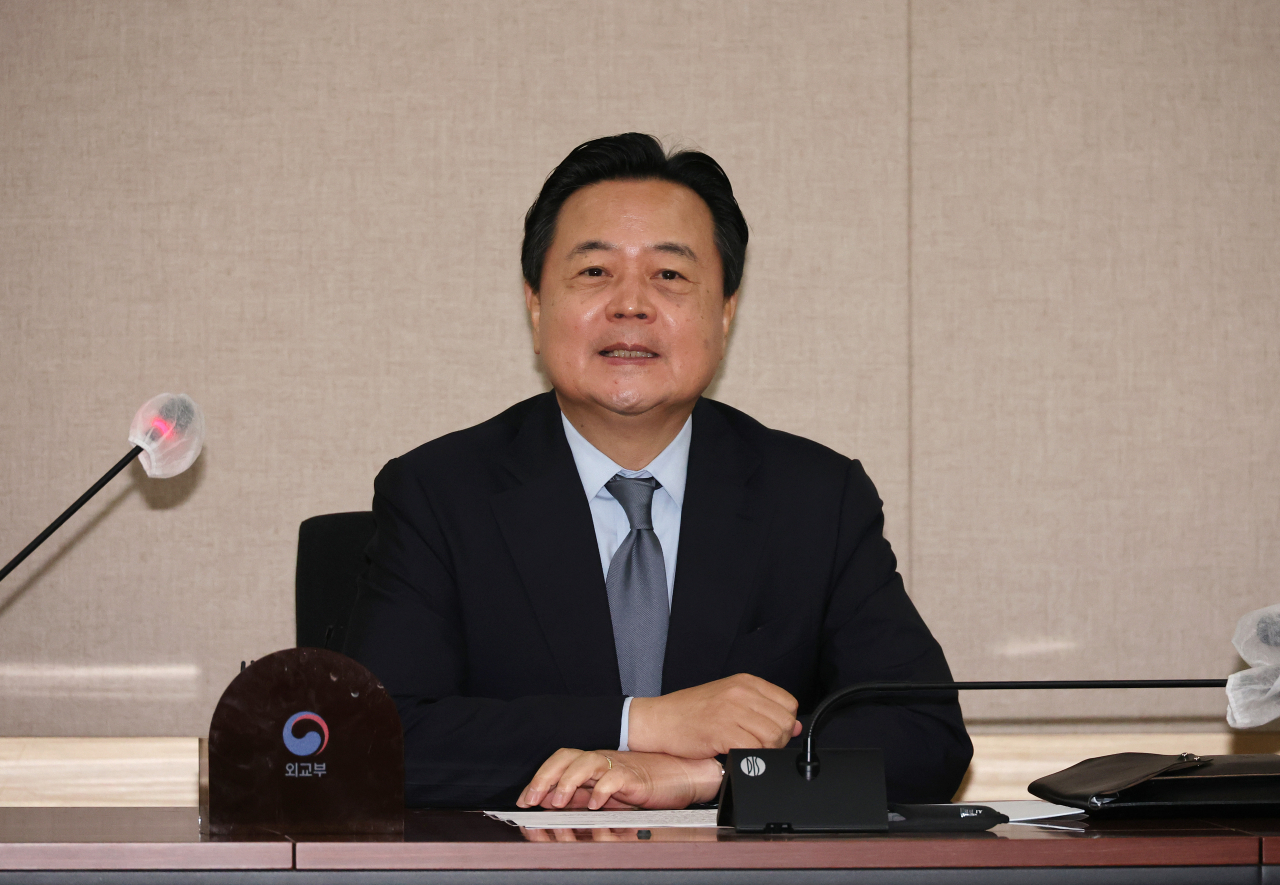
Cho Hyun-dong, South Korea's ambassador to the United States, said on Thursday that the current trajectory of the South Korea-US alliance, which has grown increasingly institutionalized, will not be swayed by US presidential election results.
"One thing I can say for certain is that the axis of the Korea-US alliance is stronger than ever before, unparalleled by any previous period," Cho said during a press briefing held in Seoul.
Cho underscored that the alliance "has already been institutionalized and deepened to the point where it is difficult to express it simply as strengthened cooperation.”
The robust alliance is evident in the "multilayered high-level dialogues, strong security consultative mechanisms such as the Nuclear Consultative Group and the cooperation mechanisms in the economic, scientific and technological fields that are tightly linked in each field," according to Cho.
"Given the overall trend, regardless of the outcome of the US presidential election in November, there will be no significant change in the trajectory of the development of the South Korea-US alliance," Cho said.
He cautioned, "The outcome of the current presidential election is currently completely unpredictable."
The ambassador elucidated that variables such as voting in swing states, trends in moderate voters and the potential impact of third-party candidates are poised to serve as to shape the course of the upcoming US presidential election in November.
A senior Foreign Ministry official, who wished to remain anonymous, detailed South Korea's adoption of a "discreet approach" in anticipation of the looming US presidential election. The official assessed the electoral race, noting an equal likelihood of victory for both incumbent President Joe Biden and former President Donald Trump.
Against that backdrop, the official also conveyed a negative perspective on the recent meeting between former Japanese Prime Minister Taro Aso and Trump in New York on Tuesday, although refraining from explicit reference.
"Some countries, although I won't name them specifically, have been noted for their actions, such as visiting the United States and exclusively meeting with former President Trump. Personally, I question the desirability of such actions," the official commented.
The official emphasized that South Korea has undertaken covert efforts to establish and sustain connections with Trump and his aides.
"We are approaching such matters with a sense of balance and sensitivity to the complexity of the issues. Specifically in our engagements with the current opposition, represented by the Trump side, we are ensuring that we handle it discreetly and carefully to the best of our ability."
The official said that based on discussions with individuals associated with Trump's presidential campaign there remains a profound understanding of issues concerning the South Korea-US alliance, its indispensability and the significance of US commitments within it.
Speaking at the press briefing, Cho also disclosed that South Korea and the US will be able to finalize the establishment of guidelines on the planning and operation of a shared nuclear strategy by this summer if consultations at the Nuclear Consultative Group proceed smoothly.
But Cho clarified that discussions regarding a trilateral framework involving South Korea, the US and Japan on nuclear deterrence have yielded no progress, when questioned about South Korea's stance on the matter
US Deputy Secretary of State Kurt Campbell on Wednesday said, “We have an existing bilateral dialogue with Japan on nuclear deterrence. And I believe that we will be taking steps, in time, to have also trilateral engagements on these topics as well.”
South Korean President Yoon Suk Yeol in May of last year also did not dismiss the possibility of Japan's participation when asked whether it would join the NCG.
"However, no advancements have been made on this front since then. Furthermore, nuclear deterrence issues hold even greater sensitivity within Japan, given its historical context, surpassing the level of sensitivity within our own country," Cho said.
"The fact that there's a possibility of discussion hasn't changed much from a year ago, so we'll explore ways to advance that discussion further."





